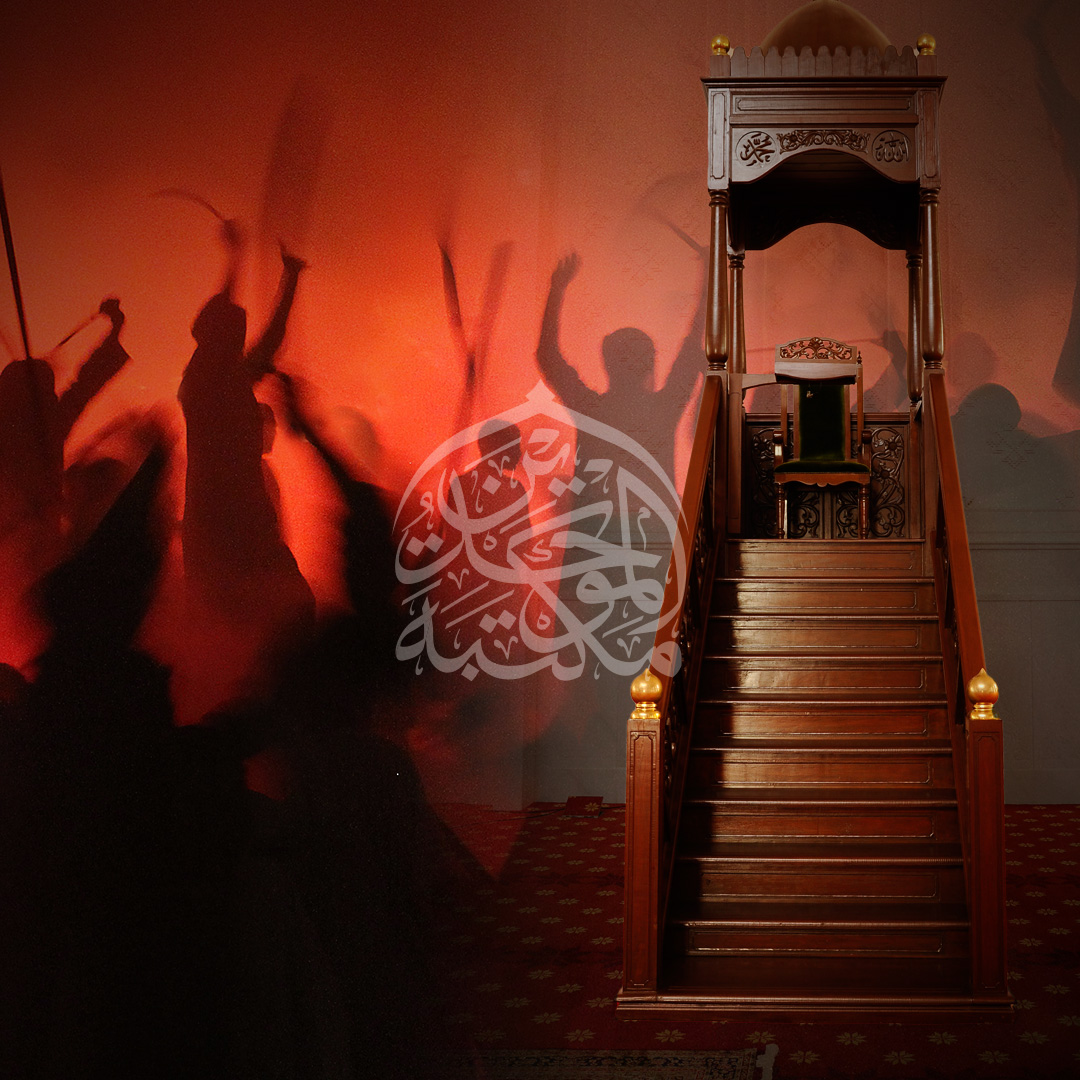Pivotal Quote
“It is not necessary that a person makes takfīr on an individual who commits a major sin in order to be considered a Khārijī. It is not necessary that a person is actually engaged in an armed struggle to overthrow a Muslim leader in order to be considered a Khārijī. If he is talking with the speech of the Khawārij and being a backseat driver and not doing any of the action himself but is encouraging others to do it, then he is a Khārijī…..”
سؤال وجواب – عربي – ٤:٠٠ دقائق
Question and Answer – English [5:36 Mins]
 Question:
Question:
There is an Imām here that was thought to be upon the Sunnah, however he has criticized the Muslim rulers on the minbar for the situation in Kashmir and previously in Burma. He was advised and claims that there is a difference of opinion on the issue of publicly criticizing the Muslim rulers. He also claims that the rulers whom he criticized, Saudi and UAE, are not his rulers as he never pledged allegiance to them so therefore it is permissible. What is the response to these doubts? Should he and his masjid be warned against? Also, is it befitting that he be labelled a Khārijī even though he does not possess all the characteristics of the Khawārij?
Answer:
It is a well-known article of faith with Ahl al-Sunnah wal-Jamā’ah and part of our Manhaj, that we do not criticize our rulers publicly; this is an Ijmāʿ from the Salaf. All of our Pious Predecessors mutually agreed to this without any difference of opinion, that anyone who is a Muslim ruler is not to be defamed publicly.
On the other hand, what we are supposed to do when it comes to the mistakes of our Muslim rulers is to advise them secretly. This is something explicitly mentioned by the Prophet ﷺ as he said in the ḥadīth:
“When one of you sees what he dislikes from his ruler, let him not publicize it, but rather let him take him by the hand secretly and advise him.”
And so, whether a Muslim ruler is the ruler that rules you or not, the same process applies. Meaning, you do not speak out publicly about his mistakes. You are to advise him secretly and if you do not have the ability to do so, then the responsibility is to remain quiet. And so, if anyone is a Muslim ruler, if he is in a position of authority above any group of Muslims, even if you do not belong to them, then the prohibition of speaking about him publicly still applies, regardless of whether that person has pledged allegiance to that leader or not.
Going against this process that we have of advising our leaders, doing otherwise and speaking publicly about their faults, brings about nothing but fitnah and trouble-making and it has no benefit in it whatsoever. Furthermore, it is a deviation from the Manhaj of our Salaf al-Ṣāliḥ and it is disobedience to Allāh and His Messenger ﷺ.
As for the Khawārij, there are different categories. Some make takfīr against the person who performs a major sin, some try to overthrow the rulers with their weapons, and there is one category of them who do not do either of the aforementioned two, but like to sit in the backseat and encourage other people to do it even though they do not have the guts to try and overthrow the ruler themselves. They sit back and tell other people to go out and do so. Thus, there are three different categories of these Khawārij.
For a person to be qualified as a Khārijī, he does not need to have all of the characteristics of all three categories. If he belongs to one group, he is a Khārijī of that particular group. So, a person does not have to meet all of the descriptions of the Khawārij in order to be labelled or considered a Khārijī. It is not necessary that a person makes takfīr on an individual who commits a major sin in order to be considered a Khārijī. It is not necessary that a person is actually engaged in an armed struggle to overthrow a Muslim leader in order to be considered a Khārijī. If he is talking with the speech of the Khawārij and being a backseat driver and not doing any of the action himself but is encouraging others to do it, then he is a Khārijī.
The Imām mentioned is to be advised. Those who are able to go to him should advise him to stop speaking about Muslim leaders. If he accepts this advice, then Alḥamdulillāh, and if he rejects it and continues speaking about the Muslim leaders, he is to be warned against so that the people are not deceived by him.
The Muslim is supposed to pray behind a person of the Sunnah, not behind a person of bidʿah, and if this person continues with this bidʿah, then the Muslims should not pray behind him. And Allāh knows best.

